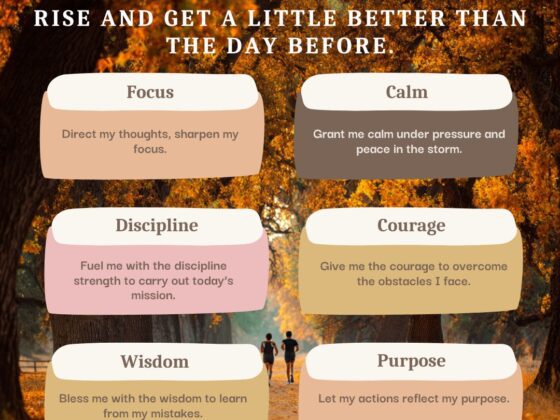I talk a lot about setting goals on my blog.
Many people I follow also discuss the importance of setting goals.
In our pursuit of success, we often set ambitious goals to measure our progress and celebrate our achievements.
But what if there’s an alternative approach to setting goals that can challenge the idea and lead to more sustainable success? This perspective is worth exploring.
Losers have goals. Winners have systems.” – Scott Adams
Scott Adams, the renowned creator of ‘Dilbert,’ strongly advocates for systems over goals. He argues that systems are more effective than setting specific goals. He is famous for saying, ‘Losers have goals. Winners have systems.’
System vs. Goals
I hate using straightforward definitions in my articles. Nothing is worse than someone writing, “According to Webster’s dictionary, XYZ is defined as….”
I will not bore you with textbook definitions. Instead, let’s break down the definitions of goals and systems to help you better understand the differences.
Goals are the desired outcomes we aim to achieve. Goals are the destinations of dreams we want to reach. They are specific, measurable, and time-bound. For example, “Losing 20 pounds in three months,” “Write and publish a book by the end of the year,” or “Save $10,000 by next December.”
Goals are tangible, time-sensitive, and measurable. They are designed to give you a finish line to cross.
On the other hand, Systems are the vehicles that get you there. They are the “how”- consistent habits, processes, and routines that drive daily progress and lead to the desired outcomes.
Instead of focusing on the finish line, systems focus on the journey: eating a balanced diet, exercising daily, or setting aside 30 minutes daily for reading and writing.
Systems are less about achieving goals and more about creating a lifestyle or collection of habits naturally aligned with desired outcomes. Because they are naturally aligned, these systems are easier to execute regularly.
The Benefits of Systems
We have been told most of our lives to create goals and then work hard to obtain those goals.
The goals we set are exciting.
They promise transformation but can also leave you lost or stranded in the middle of your journey. What happens once a goal is reached? What is left?
Systems are sustainable. They make progress part of your daily life. They ensure that you continue to grow, even when the original goal changes.
Consider the following example. Let’s say that your goal is to lose 20 pounds. What happens when you reach your goal? If you rely solely on the goal, you might revert to your old habits once the goal is reached. That means you would regain the 20 pounds you worked so hard to lose. However, if you’ve built a system of regular exercise and mindful eating, you’ve created a foundation for long-term health, regardless of weight fluctuations.
It is a big step to reframe the age-old concept of setting goals and obtaining goals to one of creating systems.
Here are some of the benefits.
- Consistency Over Time. Systems emphasize regular, small actions that compound over time. By focusing on daily habits, you create a sustainable path to improvement without the pressure of looming deadlines.
- Ability to Get Started. This closely relates to the previous point: Many people fear getting started. More specifically, they have anxiety or fear of the gap between where they are today and where they need to be to accomplish their goals. They also fear the mistakes they might make along the way. This fear causes people not even to start working towards achieving their goals. Systems help you break down your efforts into smaller, more manageable tasks, making them easier to tackle. This makes the process feel less daunting and minimizes the impact of any mistakes along the way. Focusing on these smaller steps reduces the mental barriers of time, effort, and risk that often hold you back. Systems provide the foundation for small wins, fostering consistency and building the experience needed for long-term success.
- Reduced Stress. Goals can create anxiety and stress. We typically do not like it when our deadlines approach. We get stressed out over things in the future. We worry about all the unknown variables between today and our deadline at some point in the future. Systems allow us to shift our focus to what we can control today. It lets us focus on smaller pieces and create the confidence to get things done. It helps reduce future uncertainties, and we have less stress. Less stress means having more energy to focus on what will make you successful.
- Continuous Improvement. By implementing systems, you are setting yourself up to shift to a mental mindset of constant improvement. A goal is a fixed point in time. The systems you implement encourage small, steady work that drives continuous improvement as you figure things out and build experience. Once these systems are in place, you will find that instead of stopping once the goal is achieved, systems encourage you to keep refining your process, leading to continuous growth.
- Flexibility. You know what? You might not always set the right goals. Goals can be rigid. What do you do if the circumstances change? What happens to your motivation, work ethic, finances, and confidence if factors outside of your control make your goals unobtainable? Systems are more flexible, and they allow you to adjust your approach while still making progress.
“It’s not the destination, it’s the journey.” – Ralph Waldo Emerson
- Focus on the Progress. As Ralph Waldo Emerson famously states, “It’s not the destination, it’s the journey.” Systems prioritize the journey over the destination. It is the journey that allows you to build experience and learn from mistakes along the way. This experience is critical in maintaining your success once you become successful. This shift from goals to systems helps you develop valuable skills and habits beyond achieving a single goal.
A system does not rely on external outcomes to validate success. If your system is to walk 15,000 steps daily, you succeed daily when you go for a walk, even if you have not lost 20 pounds. This builds momentum and confidence, which are both critical for long-term success.
Goals, while motivating, can feel like distant climbs up steep mountain slopes; in other words, they feel unachievable. Progress towards goals can be slow, leading to lost motivation and, in the worst case, giving up.
Systems keep you focused on the present and give you small, actionable, obtainable wins.
Real World Examples
There are many benefits to focusing on systems over goals.
Several real-world examples support this.
Here are some examples of goals versus systems and their associated outcomes.
These examples give you a better idea of the difference between a goal and implementing a successful system.
- Scott Adams (Creator of Dilbert)
Goal: Scott Adams wanted to become a successful cartoonist.
System: He created a system where he would draw at least one cartoon daily.
Outcome: Scott Adams did not just create a goal of creating a successful comic strip. Instead, he implemented a daily system of drawing. The key to this is that this consistent practice allowed him to build experience over time. Instead of just planning for success, he started and improved over time. This daily commitment allowed him to improve his skills, generate ideas, overcome obstacles, and eventually become the successful comic strip creator we know today. - James Clear (Author of Atomic Habits)
Goal: James wanted to write a best-selling book.
System: Write every day, learn from the experience, and focus on improving the writing process
Outcome: Instead of fixating on the end goal of writing a best-selling book, James focused on developing a daily writing habit. This system set James up to ensure that his writing improved continuously. The result was the book Atomic Habits, which became a best seller. - Athletes and Training Regiments
Goal: Win a medal or a championship
System: Train every day. Implement a system that encourages rigorous daily training.
Outcome: Instead of focusing on winning a championship, professional athletes often implement systems that encourage daily training, nutrition, and regular rest. Michael Phelps focused on a strict training regime. The outcome was winning a gold medal without specifically having that outcome as a goal. Putting the correct systems in place helped him become the most decorated Olympian ever. - Business environment
Goal: Increase profitability
System: Implement lean practices that reduce waste and improve efficiency.
Outcome: Kaizen (改善) is a Japanese term that means continuous improvement. It is a philosophy or practice that focuses on making small, incremental changes to improve processes, products, or services. The concept emphasizes that even minor improvements can lead to significant positive changes. Companies like Toyota have focused on systems like this that encourage continuous improvement. Significant gains can be obtained by clearly focusing on improving processes daily, leading to increased profitability. - Personal Fitness and Health
Goal: Lose 40 pounds.
System: Make exercise and healthy eating habits part of your daily routine
Outcome: This example hits home for many of us. How many of you have set a weight loss goal and met the goal, only to put the weight back on only a few months later? This is because you did not put the correct systems in place to make exercise and eating healthy part of your daily routine. People focusing on implementing systems that encourage exercise and healthy eating habits tend to see more sustainable weight loss and improved health. Instead of setting a goal of losing 30 pounds, implement a system or work out three times a week. Put a system in place to prep your meals for a week so you have something healthy available when you are hungry. This can lead to a more lasting weight loss and a healthier lifestyle. - Writers and Content Creators
Goal: Gain a large following or write a novel
System: Publish content regularly and engage with the audience
Outcome: This is a repeat of what I said above. Successful bloggers, writers, and YouTubers often focus on producing high-quality content. They tweet and use Instagram daily for regular audience engagement. This daily discipline leads to an increased content library, creating more experience as a writer and gradually building a large, engaged audience. Tim Ferriss built a significant following by producing insightful content on a regular basis. This eventually led to him publishing a number of best-selling books.
These examples show that focusing on the daily systems and routines that lead to success is often more effective than fixating on specific goals. Committing to a process ensures continuous improvement, adaptability, and long-term success.
Let’s Get Started
Even if you are starting to understand the difference between systems and goals, how the heck do you create and implement systems?
To transition from a goal-centric life to one focused on systems, identify the habits and routines that will lead to your desired outcomes.
- Identify Key Habits – Identifying the actions contributing to your overall success is extremely important. For weight loss, you might implement regular exercise and healthier eating habits. It could even include daily reframes of what you eat. You could implement a system that filters out things contributing to an unhealthy lifestyle. A system that eliminates processed foods such as soda from your diet because you have reframed them as “poison” could greatly benefit your health.
- Set up Routines – Creating a schedule that incorporates your key habits is vital. They have to become a non-negotiable part of your day. Walking has become a habit for me, and I make it part of my morning, lunch, and evening routine. It is something that I do not miss and have not missed in 498 days. That is an average of 15,000 to 16,000 steps a day since 2022. What is your daily non-negotiable?
- Track Progress – This is key for me. I am crazy about my Apple Watch health tracking. I know my 498-day Move, Exercise, Stand completion record well. It used to be watch the scale. I would watch my weight go up and down with no real progress. Instead of measuring progress solely on goal completion, I have had more fun tracking the consistency of my system. In this case, my Apple Watch daily closure badge. A paper journal works just as well. It needs to be easy and something that holds you accountable.
- Adjust as Needed – Systems are meant to improve over time. No system is perfect; depending on the system and how your experience grows over time, you may have to adjust your system. Don’t follow the system over the cliff. If it does not give you the outcomes you are looking for, there is nothing wrong with tweaking it. Remember, we are not looking for perfection out of the gate. It is often better to get started and learn along the way. With this approach, it is expected that you will have to modify your systems as you learn more.
- Celebrate the Wins – You will make many mistakes along the way. It is essential to celebrate these mistakes because every mistake you overcome and learn from builds the experience you will need to become successful. At the same time, acknowledge your wins. Daily improvements and efforts are wins. Implementing this level of discipline into your life is a win. Celebrating these wins is a form of motivation and helps to keep you focused.
While goals give you direction, systems give you a roadmap and forward progress to get you there. By focusing on the process rather than the outcome, you create a system of sustainable output that leads to success. The journey helps create an experience that allows you to adapt to changing circumstances, leading to continuous improvement.
Conclusion
Ultimately, the key is not to completely choose between goals and systems but to let them complement each other. Goals provide direction, while systems provide consistency, habit, and action.
A goal without a system is, at best, wishful thinking. The worst-case goals are abandoned before they even start.
Systems without goals lack purpose and direction.
Shift from a goals-only mentality to a systems today.
Implement a system that works for you.
By shifting your attention from the outcome to the process, you’ll find that success becomes inevitable—and the journey more fulfilling.
The Day Warrior
How to find more content from The Day Warrior:
If you enjoyed this newsletter, please subscribe.
If you want to provide feedback, please take The Day Warrior Survey.
If you want to have a deeper discussion about this subject, please get in touch with The Day Warrior.
Follow me on X for daily short and long-form content: @thedaywarrior.
My LinkedIn information is here: https://www.linkedin.com/in/the-day-warrior/
I am also on Instagram: @thedaywarrior.
My website is http:/thedaywarrior.com.
“Never blindly accept what you read online. Always challenge it with an open and critical mind.” – The Day Warrior










